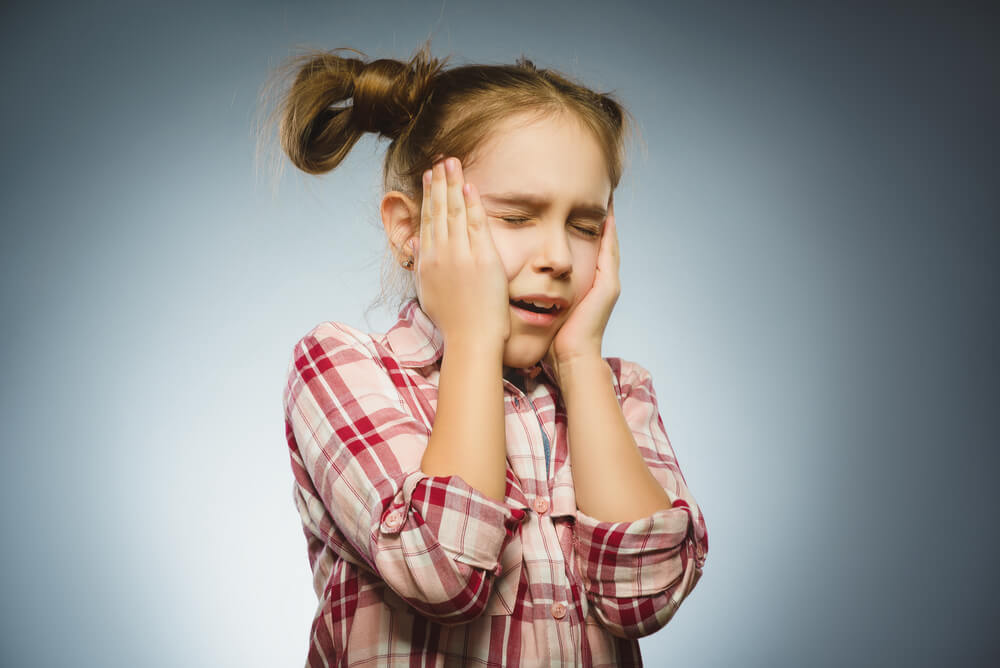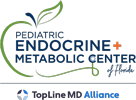What is Hyperthyroidism?
Hyperthyroidism is a condition that occurs when your thyroid gland is overactive. This results in the overproduction and release of excessive amounts of thyroid hormone than the body requires. The thyroid gland is a small hormone-releasing gland that is butterfly-shaped located in the neck in front of the trachea. Normally, it produces thyroid hormone, also known as thyroxine, that controls normal body functions such as body temperature, metabolism, nervous system, breathing, weight, and heart rate.
Excess thyroid hormone in the body’s circulation will accelerate most of its function, including its metabolism resulting in involuntary weight loss, anxiety, tremors, increased heat sensitivity, an irregular heartbeat, and affects the growth and development of the child. Hyperthyroidism is relatively rare in children.
Signs and Symptoms of Hyperthyroidism in Children

Excess levels of thyroxine hormone in the circulation have several effects on the normal functioning of the body, resulting in:
- Weight loss
- High blood pressure
- Irregular heart rate
- Anxiousness and easy irritability
- Increase appetite
- Tremors of the hands
- Difficulty sleeping
- Fatigue
- Enlarged thyroid gland resulting in swelling of the neck (commonly known as goiter)
- Bulging eyes
- Delayed onset of puberty
- Increase in height
- Difficulty concentrating
Common Causes of Hyperthyroidism in Children
Graves Disease
This is the most common cause, especially in children. It is an autoimmune condition where the child’s body produces antibodies that stimulate the thyroid gland to increase its hormone production.
Intake of Too Much Iodine
Iodine is a basic necessity during the production of thyroid hormones. Excessive intake of iodine in the child’s diet will result in the overstimulation of the gland. The overstimulated thyroid produces large amounts of thyroid hormone resulting in iodine-induced hyperthyroidism. Iodine poisoning requires immediate medical attention, where the doctor may prescribe drugs to induce vomiting to expel the excess iodine in the body. The doctor may also advise safe consumption of activated charcoal to prevent the absorption of iodine by the body.
Excess Thyroid Hormone Medication
In some situations, the child may have hypothyroidism, in which the thyroid does not produce adequate hormones necessary for normal bodily functions. The primary treatment for this condition is thyroid hormone medicine, which stimulates the gland to produce enough hormones to meet the body’s requirements. A high dosage of this medication may overwork the thyroid gland, leading to doctor-induced hyperthyroidism. This type of hyperthyroidism is commonly attributed to the doctor’s error in adjusting the prescription based on the patient’s follow-up blood test. Nevertheless, it can also be due to the accidental or intentional intake of excess medicine than prescribed and can occur in patients with thyroid cancer or depression.
Thyroid Nodules
These autonomously functioning growths in the thyroid gland produce excess thyroid hormone. Most thyroid nodules are benign. However, it is necessary to have a biopsy done to confirm it is non-malignant. The nodule may press on the child’s esophagus or trachea, resulting in difficulty swallowing or breathing.
Thyroiditis
This is a condition where the thyroid gland is inflamed due to infections, exposure to radiation, certain medication, autoimmune conditions, etc. The inflamed thyroid gland produces excess thyroid hormone, which leaks into the circulation resulting in hyperthyroidism. Over time, hyperthyroidism caused by thyroiditis gets better on its own, and the patient recovers.
How is Hyperthyroidism Diagnosed in Children?
Doctors review the child’s symptoms, take their medical history, and perform a full physical examination. Confirmation of the diagnosis will require blood tests to check the child’s thyroid hormone levels. If the child has hyperthyroidism, the tests will show high thyroid hormone levels. Further tests, such as thyroid ultrasound or thyroid scintigraphy, may be done for the doctor to determine the exact cause of hyperthyroidism.
Graves Disease in Children
It is a rare condition that results in hyperthyroidism in children. It may affect children at any age, but its prevalence increases with age, peaking during adolescence. Normally, antibodies are produced by the body’s immune system to fight diseases and infections. However, in Graves’ disease, the child’s antibodies attack the thyroid gland resulting in the overproduction of thyroid hormones.
Some of the risks factors that increase the likelihood of Graves’ disease in children include:
- Gender – females children have a higher risk of getting graves’ disease than males
- Family history of autoimmune conditions including Graves Graves’ disease, Hashimoto thyroiditis
- Stress
- Trauma to the thyroid gland
- Viral infections
Treatment of Hyperthyroidism in Children
Anti-thyroid Medication
This medicine targets the thyroid gland and blocks the production of its hormone. The most commonly prescribed drug is methimazole. Propylthiouracil is rarely prescribed because one of its major side effects is severe liver damage and death resulting from the liver damage in fatal cases. Some doctors may prescribe beta-blockers to decrease the condition’s symptoms to lower the hormone levels closer to the normal levels. Most of these medications are taken for a minimum of two years. Fortunately, once the child reaches the stage of remission, their treatment is complete. However, close monitoring of the children is necessary because hyperthyroidism tends to recur in children. Like other medications, anti-thyroid medication also has its fair share of side effects, including:
- Itching
- Skin rashes
- Abnormal hair loss
- Joint and muscle aches
- Fever
- Nausea
- Heartburn
Radioactive Iodine Treatment
This treatment involves ingestion of radioactive iodine in a capsule or liquid form. The thyroid gland takes up the medicine, and the drug permanently destroys part of or the entire gland, thus ceasing the production of the hormone. This treatment option is commonly used when the child has a severe reaction to anti-thyroid medication or if this medication is ineffective in the treatment of hyperthyroidism. This treatment method is safe, and its cure rates are up to 95%. However, this treatment option is not advisable for children below ten years old or if their hyperthyroidism is fatal and uncontrollable.
Surgery

Surgery for hyperthyroidism is known as a thyroidectomy. It involves the removal of the entire thyroid gland or just part of it. This procedure is commonly the last treatment resort when other non-invasive treatments have failed. With thyroidectomy, the child will be required to take thyroid hormones for the rest of their lives to prevent the effects of low thyroid hormone levels in their body. This is the preferred treatment option for patients with Graves’ disease, and it has the lowest relapse rate compared to the other treatment options.
Thyroid Disease Treatment in Florida
At TopLine MD, we devote our time and resources to offer our undivided care to children in Florida suffering from hyperthyroidism. Our staff comprises qualified and committed doctors who have participated in various treatment studies and done the appropriate research to provide compassionate care and innovative treatment solutions to hyperthyroidism children.
The objective of our facility is to provide the necessary medical attention that the children require to return to their lives before they suffer from hyperthyroidism. We understand that having a sick child is scary and overwhelming, and finding the proper treatment for this child may not be simple. Therefore, we prioritize child care and have the best pediatricians to answer any parents’ or guardians’ inquiries. In addition, we keep tabs on our patients’ progress, watch out for any side effects of their treatment, and look out for any signs of recurrence of the condition.
Our staff is at your disposal. Kindly contact us on any inquiry you may have.


